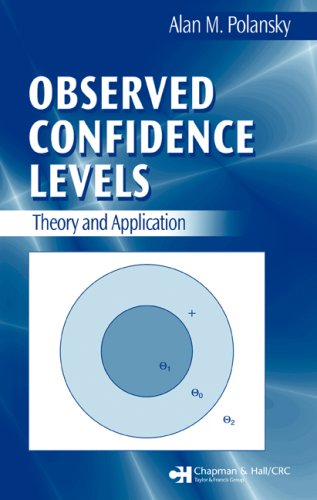Statistical Decision Theory and Bayesian Analysis (Springer Series in Statistics)
by James O. Berger

Publisher: Springer
Number Of Pages: 617
Publication Date: 1993-03-25
ISBN-10 / ASIN: 0387960988
ISBN-13 / EAN: 9780387960982
Binding: Hardcover
Book Description:
"The outstanding strengths of the book are its topic coverage, references, exposition, examples and problem sets... This book is an excellent addition to any mathematical statistician's library." -Bulletin of the American Mathematical Society In this new edition the author has added substantial material on Bayesian analysis, including lengthy new sections on such important topics as empirical and hierarchical Bayes analysis, Bayesian calculation, Bayesian communication, and group decision making. With these changes, the book can be used as a self-contained introduction to Bayesian analysis. In addition, much of the decision-theoretic portion of the text was updated, including new sections covering such modern topics as minimax multivariate (Stein) estimation.
Summary: excellent book by a top Bayesian decision theorist
Rating: 5
Jim Berger is well known for his work in decision theory, Bayesian methods amd his texts on these subjects. This one is certainly one of the best to cover decision theory and give a rigorous treatment to Bayesian methods, particularly in the context of decision theory.
Summary: Absolutely amazing: a unique text presenting theory in a useful way!
Rating: 5
This book (which is becoming somewhat of a classic) is simply outstanding. The author's philosophical and mathematical reasoning is impeccable. This book is very deep and will not just teach you theory and techniques but will teach you how to think and how to approach and formulate problems, as well as how to interpret the results obtained by various methods and use them in a practical setting. This book is very practically oriented. The best thing about this book, however, is that it is so clearly written. Berger is an outstanding writer with the ability to communicate difficult concepts without watering them down.
This book covers decision theory and Bayesian statistics in much depth. While it is a high-level text oriented towards researchers and people with strong backgrounds, it is clear enough that someone learning this material for the first time would have little trouble with it. It provides ample review and clear exposition of key mathematical and statistical concepts such as sufficiency, convexity. Its exposition of invariance (with respect to groups of transformations) is both the clearest and most rigorous I have found in any statistics text. In my opinion, there are no weak or unclear sections in the book, and the difficulty level does not rise disproportionately in later chapters the way it does in many books on similar subjects.
This book is rich with examples, and the examples are mostly of a practical nature, in contrast to the "toy" mathematical examples that dominate many books written at this advanced level. The exercises are diverse and extensive, and have a good gradient of difficult level for building both technical skill and depth of understanding. The exercises are more carefully worded and constructed than is typical for books at this level. Most of the typos have been caught and corrected in the revised edition.
This is an old book. The author, in his philosophy, was arguably well ahead of his time. The ideas contained in this book are highly modern. However, the use of computers in statistics has changed since this book was written. This book is a book on theory and will teach you how to do things by hand. I do not see this as a weakness at all, but one should be aware of it when considering this book. But, as the other author noted, it will not teach you algorithms, numerical techniques, or how to use a statistical computing package.
I think this book would make an outstanding textbook for a course in statistical decision theory or Bayesian statistics. It would also be useful as a supplement for a course in statistical inference. Perhaps more importantly, it is very useful for self-study. I think this book would make an excellent addition to any statistician's collection--and it would certainly be useful to people working in more practical settings, such as business, science, or social science. If you are going to buy any one advanced, theoretical book on statistics, this would be the one to buy.
Summary: Excellent book on Bayesian analysis
Rating: 5
[1] It is a classical book written by an excellent mathematician, not a worker of statistics!
[2] Its mathematics is precise and fascinating.
[3] The philosophy of Bayesian statistics is well discussed.
[4] It's worthy to read it many times.
[5] At the time of its publication, the revolutionary computational statistics was still in gestation. So, it is unfair to criticize its lack of numerical simulation, etc. As a comlement, some pragmatistic books are recommended, such as J. Liu's book on MCMC methods, Tanner's Tools for Statistical Inference, etc.
Summary: Excellent book!!!
Rating: 5
This book is awesome. This book is theoretical but it has enough examples to follow along. The author's presentation is clear in every step. The problems in the book are challenging but do-able. Don't need another reference book.
Summary: a very readable and useful book
Rating: 5
The professor used this book in the math stat course I took 2 years ago. I did not like the book at first, it looks too long to be covered. but it turned to be very easy to follow (You still need to think, but the author, being a hero in this field, made a very clear presentation to the audience). As long as you invest some time and brain, you can get a lot from this book. The problems are very good and instructional too.
Djvu Download
6.267 MB






















